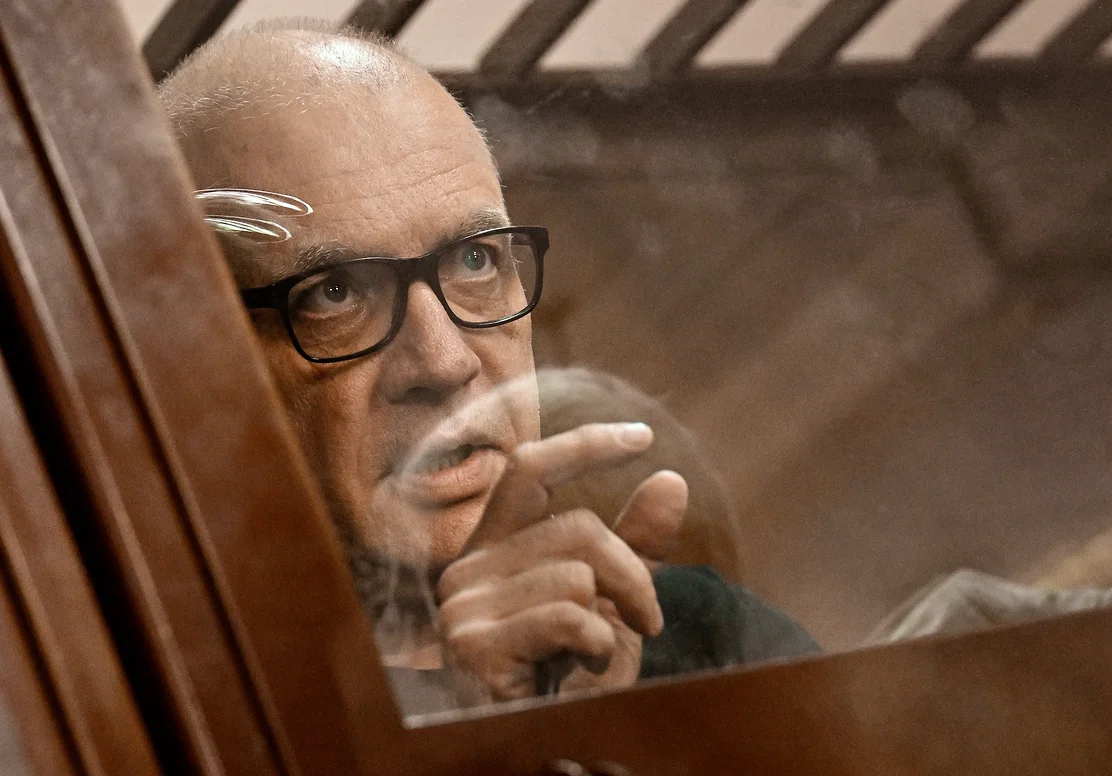The International Commission of Jurists (ICJ) condemns the ongoing criminal prosecution of Dmitry Talantov, a prominent Russian lawyer and former president of the Udmurtia Bar Association, and calls for the prosecuting authorities to put an immediate end to the trial against him and drop the charges .
Dmitry Talantov is facing charges under the Russian Criminal Code for allegedly disseminating “false information” about the Russian Armed Forces, alongside charges for incitement to hatred. Talantov’s prosecution stems from social media posts in which he criticized the actions of Russian military forces in Ukraine, specifically referencing atrocities reported in towns such as Bucha, Irpin, and Mariupol. His posts are alleged to have violated Article 207.3 of the Russian Criminal Code, which criminalizes the dissemination of “false information” about the Russian Armed Forces, and Article 282, incitement to hatred.
In making these comments on matters of public concern, Dmitry Talantov was exercising his right to freedom of expression, protected under international and Russian law.
The ICJ notes with alarm that not only has Dmitry Talantov had his right curtailed on spurious criminal charges, but on 18 November 2024, the prosecution requested a 12-year prison sentence, underscoring the severity of the likely sanctions for the peaceful exercise of his right to freedom of expression.
This case forms part of a broader and troubling pattern of repression in Russia, in which lawyers, human rights defenders, and journalists are increasingly targeted for carrying out their professional functions. The ICJ has noted numerous instances in which legal professionals have faced harassment for representing clients in politically sensitive cases. Such actions are incompatible with the principles of an independent legal profession and the fair administration of justice.
The ICJ recalls that Russia, as a party to the International Covenant on Civil and Political Rights (ICCPR), is bound to respect and protect the right to freedom of expression. Article 19 of the ICCPR provides that this right includes the freedom to seek, receive, and impart information of all kinds. The charges against Talantov appear to serve as a tool for silencing criticism of the Russian military’s actions in Ukraine.
The ICJ also emphasizes that under the United Nations Basic Principles on the Role of Lawyers, it is the duty of the State to protect the independence of the legal profession. Under these principles, lawyers must be able to perform all of their professional duties without fear of intimidation, harassment, or improper interference. Governments must refrain from prosecuting or otherwise penalizing lawyers for actions undertaken in accordance with their professional duties and ethical standards.
The ICJ urges the Russian authorities to immediately drop all charges against Dmitry Talantov and ensure his unconditional release. The ICJ further calls on Russia to repeal or amend laws, such as Article 207.3, that are inconsistent with its international obligations under the ICCPR. The Russian authorities must take steps to guarantee that lawyers can carry out their work without fear of reprisal or persecution.
Background:
Dmitry Talantov has actively engaged in defending individuals accused in politically sensitive cases. Notably, he served as defense lawyer for Ivan Safronov, a journalist sentenced to 22 years in prison on charges of high treason in September 2022.
Talantov was detained in June 2022 in Izhevsk and transported to Moscow. He has been held in pre-trial detention ever since. Despite concerns about his health and reports of inadequate conditions in detention, the trial has proceeded in the Zavyalovsky District Court of Udmurtia. On 18 November 2024, during the closing arguments, the prosecution formally requested a 12-year prison sentence, arguing that Talantov’s posts were politically motivated and incited hatred. The defense has called for his full acquittal, and the court is expected to issue its verdict on November 28, 2024.
The ICJ has previously highlighted concerns regarding the arrest of Talantov and various obstacles lawyers face when representing people charged under Article 207.3 . Such legislation is incompatible with international human rights standards and appears to be a means to stimulate legitimate public debate.





